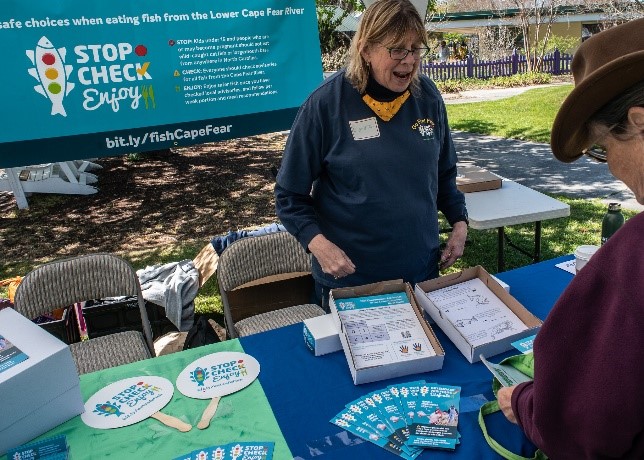Superfund Research Program
July 2024

Harmful contaminants like mercury and PFAS can accumulate in fish and can be transferred to people when those fish are eaten. Fish consumption advisories provide recommendations about what fish and shellfish to limit and avoid eating based on the body of water where the fish was caught. However, state agencies in the North Carolina Department of Health and Human Services often lack resources to update and communicate these advisories to the public.
With support from NIEHS, researchers at Duke University Superfund Research Program (SRP) Center and their community partners conducted a survey to learn about evaluate the consumption of fish along Cape Fear River area, and informed campaigns about safe fish consumption. Their work helped identify groups who were at increased risk of consuming contaminants in fish, enhanced communication of fishing consumption advisories, and shared ways for fishers to limit their exposure to harmful chemicals in the fish they ate.
To learn more, see the Translational Research Story featuring Duke University SRP Center’s work on fish consumption advisories.


